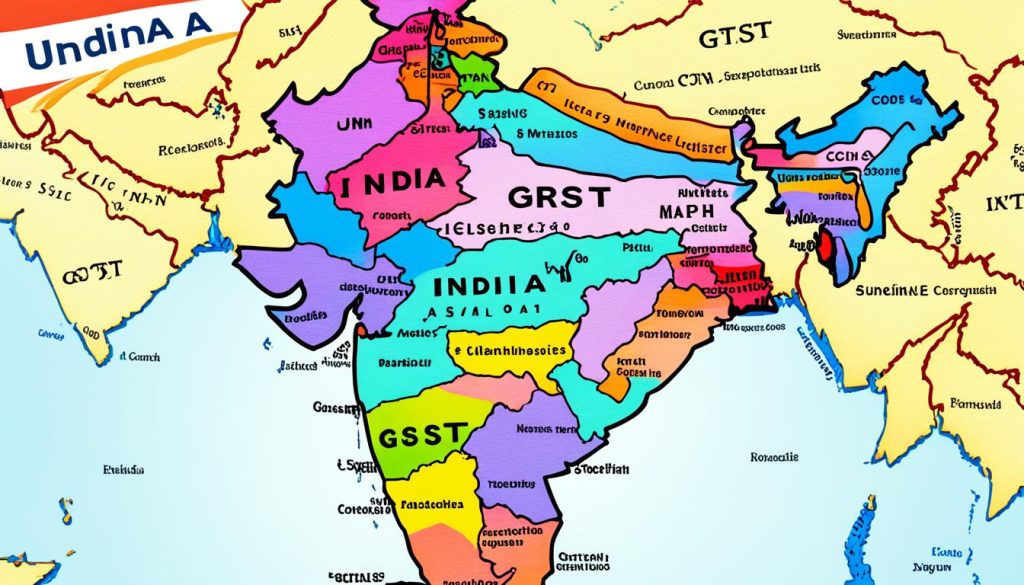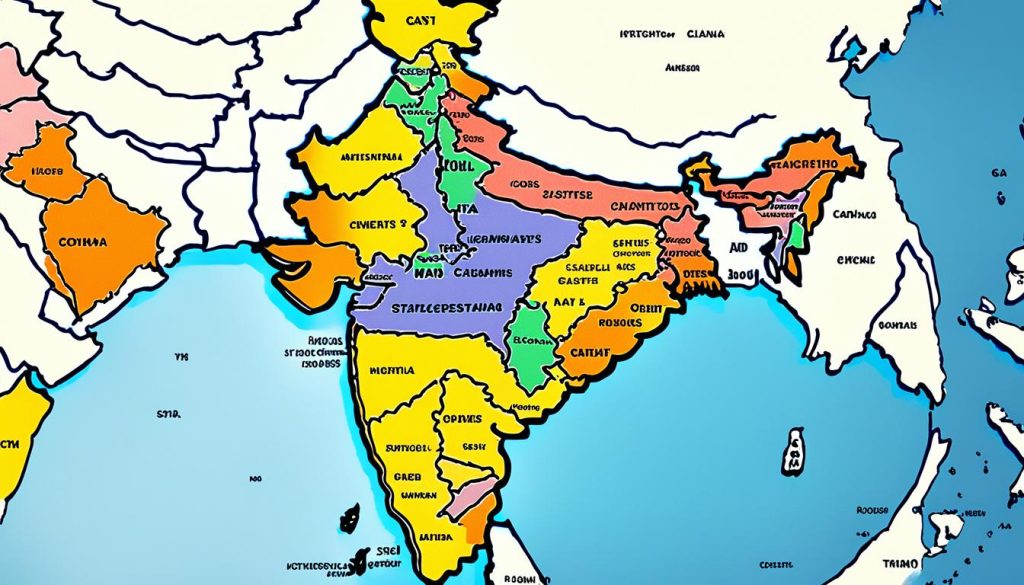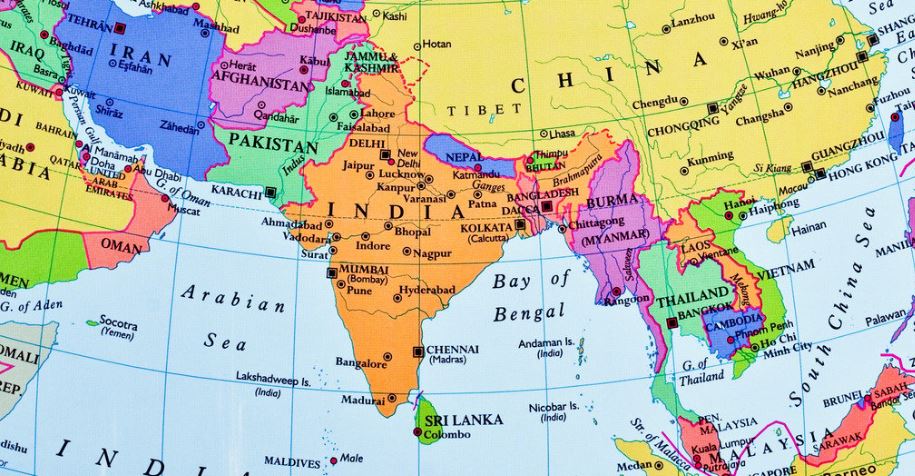The 33 GST State Code is a unique code assigned by the government to each state and Union Territory in India for the purpose of GST registration and compliance. It is represented by a two-digit alphanumeric code, which is the first two digits of the Goods and Services Tax Identification Number (GSTIN).
These state codes are used extensively in various aspects of the GST system, including GST registration, invoice generation, and filing of GST returns. Understanding the 33 GST State Code and its application is crucial for businesses and professionals to ensure proper compliance with GST regulations.
What is the 33 GST State Code?
The GST State Code for the state of Tamil Nadu is 33. This code is used to identify the state when businesses register for Goods and Services Tax (GST) in India. It plays a crucial role in the Goods and Services Tax (GST) system as it helps identify the origin and destination of goods and services during transactions.
The 33 GST State Code is represented by a two-digit alphanumeric code, which constitutes the first two digits of the GSTIN (Goods and Services Tax Identification Number). It is used in various aspects of GST, including GST registration, invoice generation, and filing of GST returns.
Benefits of 33 GST State Code
The GST State Code, such as 33 for Tamil Nadu, provides several benefits, including:
- Identification: It helps in identifying the specific state where a business is located or registered for tax purposes.
- Tax Compliance: The code ensures that businesses are registered under the correct state jurisdiction, making tax compliance easier for both businesses and tax authorities.
- Interstate Transactions: It facilitates the seamless movement of goods and services between states, as the GST State Code helps in determining the origin and destination of the goods.
- Data Analysis: The code aids in data analysis for tax authorities to track transactions, monitor compliance, and prevent tax evasion.
- Uniformity: The standardized format of the GST State Code ensures uniformity across all states, simplifying tax processes and reducing confusion.
Overall, the 33 GST State Code plays a crucial role in streamlining business operations, ensuring tax compliance, and fostering smooth interstate trade. It offers numerous benefits that contribute to the efficient functioning of businesses in India.

How is the 33 GST State Code used in GSTINs?
The 33 GST State Code plays a crucial role in the implementation of the Goods and Services Tax (GST) in India. It is used in various aspects of GSTINs (GST Identification Numbers) to ensure accurate identification and compliance. Let’s explore how the 33 GST State Code is utilized in different areas of the GST framework.
GST Registration
During the GST registration process, businesses are required to provide their state code as part of their GSTIN. The 33 GST State Code signifies the state or union territory where the taxpayer is registered. It helps identify the taxpayer’s jurisdiction and facilitates seamless communication between the taxpayer and the tax authorities. Using the correct state code in the GSTIN is essential for accurate tax filing and compliance.
GST Invoice Generation
The 33 GST State Code is also included in the invoice generated by a taxpayer. It helps indicate the state or union territory from which the supply of goods or services is made. This information is crucial for proper tax calculation and reporting. By including the 33 GST State Code in invoices, businesses ensure transparency and accountability in their transactions.

GST Returns Filing
When filing GST returns, taxpayers need to mention their state code in the relevant sections. The 33 GST State Code is used to indicate the state or union territory to which the returns relate. This information enables the tax authorities to track and verify the tax liabilities and input tax credits claimed by taxpayers. Filing accurate returns with the correct 33 GST State Code is essential for complying with GST regulations and avoiding penalties.
Seamless Integration into the GST System
By incorporating the 33 GST State Code in GSTINs, the GST system ensures efficient data management and seamless integration of tax-related information. The state code allows for easy identification and categorization of taxpayers based on their respective states or union territories. It helps streamline tax administration, facilitate inter-state transactions, and promote transparency in the indirect tax system.
In conclusion, the 33 GST State Code is a critical component of GSTINs in India. It is used in GST registration, invoice generation, and GST returns filing processes. By accurately incorporating the state code in GSTINs, businesses and professionals ensure compliance with GST regulations, facilitate transparent transactions, and contribute to the overall efficiency of the GST system.
Difference Between the TamilNadu State Code and 33 GST State Code
In the realm of tax codes and administrative processes in India, it is important to understand the difference between the TamilNadu State code and the 33 GST state code. While these codes may seem similar, they serve distinct purposes and are used in separate contexts.
The TamilNadu State code, as the name suggests, is specific to the state of Tamil Nadu. It is used in various state-level administrative processes such as record-keeping, identification, and verification. This code helps identify individuals, businesses, and entities operating within the state of Tamil Nadu.
On the other hand, the 33 GST state code is a code assigned to every state and Union Territory in India for the purpose of GST registration and compliance. It is a part of the Goods and Services Tax (GST) system introduced in India. The 33 GST state code is integral to the GSTIN (Goods and Services Tax Identification Number) and is used extensively in the GST ecosystem for various transactions and compliance requirements.
It is essential to distinguish between the TamilNadu State code and the 33 GST state code as they serve different functions. While the TamilNadu State code is limited to the state of Tamil Nadu, the 33 GST state code applies to all states and Union Territories in India. Understanding and correctly utilizing these codes is vital for accurate record-keeping, compliance, and smooth functioning within the respective systems.
Can the 33 GST State Code Be Used for Transactions Outside TamilNadu?
Yes, the 33 GST State Code can be used for transactions outside Tamil Nadu. The 33 GST State Code is not limited to transactions within a specific state or Union Territory. It is applicable to all transactions within the GST system, including interstate transactions.
For interstate transactions, the 33 GST State Code plays a crucial role. It helps in identifying the origin and destination states, enabling businesses to correctly charge IGST (Integrated GST) instead of CGST (Central GST) and SGST (State GST). This ensures compliance with the GST regulations and facilitates smooth business operations across state borders.
Whether you are conducting business within Tamil Nadu or outside the state, the 33 GST State Code remains valid and applicable. It allows businesses to accurately report their interstate transactions and fulfill their tax obligations in compliance with the GST laws. Therefore, you can confidently use the 33 GST State Code for your transactions, regardless of whether they are within Tamil Nadu or outside the state.

Conclusion
In conclusion, the 33 GST State Code is a vital component of the Goods and Services Tax (GST) system in India. This unique code is assigned to each state and Union Territory for the purpose of GST registration and compliance. Understanding and correctly using the 33 GST State Code is essential for businesses and professionals to ensure adherence to GST regulations and facilitate smooth transactions within the GST system.

